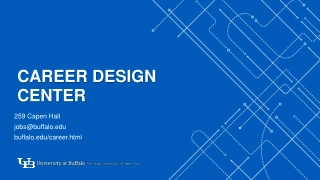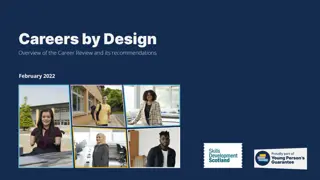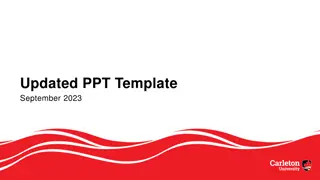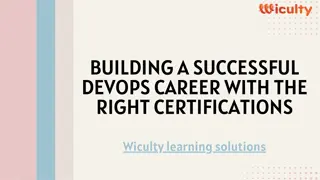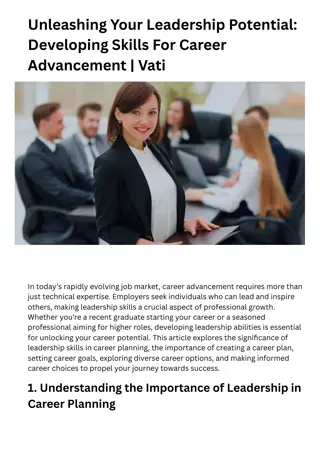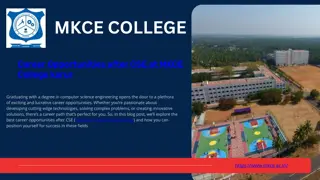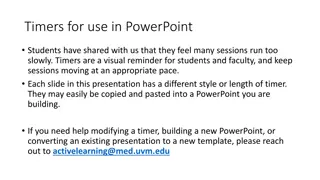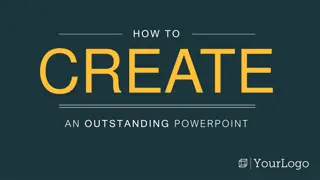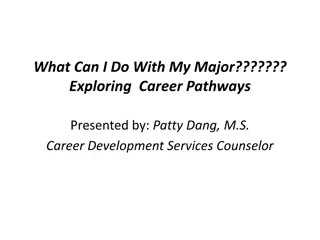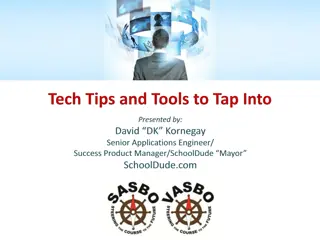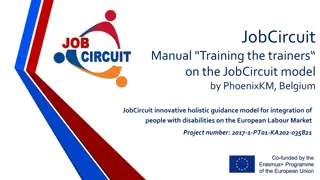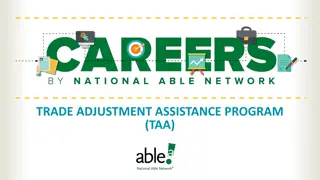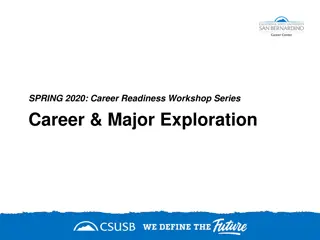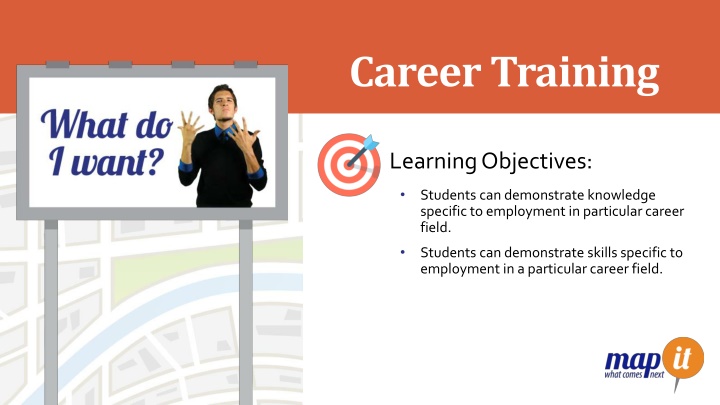
Effective Career Training Strategies for Employment Success
Enhance your career prospects with targeted learning objectives and practical activities focused on securing employment in your desired field. Learn essential skills, interview techniques, and professional networking tips to excel in job opportunities.
Download Presentation

Please find below an Image/Link to download the presentation.
The content on the website is provided AS IS for your information and personal use only. It may not be sold, licensed, or shared on other websites without obtaining consent from the author. If you encounter any issues during the download, it is possible that the publisher has removed the file from their server.
You are allowed to download the files provided on this website for personal or commercial use, subject to the condition that they are used lawfully. All files are the property of their respective owners.
The content on the website is provided AS IS for your information and personal use only. It may not be sold, licensed, or shared on other websites without obtaining consent from the author.
E N D
Presentation Transcript
Career Training Learning Objectives: Students can demonstrate knowledge specific to employment in particular career field. Students can demonstrate skills specific to employment in a particular career field.
What characteristics does a good employee exhibit in a job interview? Career Training Kick-off Activity: Watch Biz Kid$ It s a Job Getting a Job from DCMP: https://www.dcmp.org/media/7094-biz-kid-it-s-a-job-getting-a- job/stream?digest=34716 (4:20-5:44) Meet Jason as he interviews for Image PR Agency. Take notes on the pros and cons of Jason s interview. Whole class discussion: Name any positives you noticed from Jason s interview. Name any negatives you noticed from Jason s interview. How does behavior affect first impressions?
Career Training Classroom Activity: Use the Career Training Interview Activity handout to guide you in role playing an ideal interview. One student plays the role of the interviewer, while the other student is the interviewee. Decide the place of employment and job position. Practice role playing and then perform in front of class. Interview Role Play Whole class discussion: What are things you noted that were done well? Is there anything you would have done differently as the job seeker? What are good examples of questions to ask employers at the end of the interview? What are examples of poor questions job seekers shouldn t ask during an interview? Imagine you are the interviewer. Two job seekers interviewed equally well and are both highly qualified. What would cause you to hire one person over the other?
Career Training: Finish watching the BizKid$ video from the kick-off activity https://www.dcmp.org/media/7094-biz-kid-it-s-a-job-getting-a- job/stream?digest=34716. Pay attention to the ideas of seasonal work, the importance of first impressions, ways to build a resume, the value of volunteering and internships, traits employers look for, and importance of networking. Biz Kid$ It s a Job Getting a Job Whole class discussion: How can social and professional networking create job opportunities? List some characteristics employers look for when hiring. List some values that are important for job performance.
Map It Online Activity: Putting it All Together
Map It Online Activity: Goal Setting 1. What will you do first? 2. What can you do right now (short term)? 3. What can you do in the future (long term)? 4. What could stop you from achieving this goal (roadblock)?
Map It Online Activity: Role play hitting a roadblock, while incorporating the following steps to getting around the roadblock. Hitting a Roadblock Activity 1. Identify the roadblock. 2. Evaluate my options. 3. Develop a plan.
Career Training: Record a 1-2 min video of yourself performing a task at a work- based learning environment, or while doing something you are good at home, school, or in the community. Soft Skills Activity With a peer, watch one another s video and complete the following reflection questions: What communication skills did you notice in the video? How was their body posture? Did they dress appropriate for the setting? What skills do you notice? What strengths did you notice? What traits did you notice? As a whole class discuss the different tasks and work place settings.
Career Training: Complete a final project for your (favorite) work-based learning experience. Highlight the following topics: job location, job tasks, skill development, experience gained, SMART goals, and any other future thoughts or goals they may have as a result of their work experience. Work-Based Learning Final Project Consider the following presentation formats: PowerPoint, Prezi, video, ePortfolio, or Visual Resume. Personalize your presentation by choosing a good template, and adding video and/or images of yourself completing work tasks. Consider ways to utilize assistive technology support as needed. Ask your teacher or peer for feedback to students, and allow adequate practice time before the Final Project Celebration.
Career Training: Watch the following DCMP video, Getting It Right At the Interview, https://www.dcmp.org/media/6343-getting-it-right-at-the-interview-student- version/stream?digest=31737 (24:23). Take notes on the basics of a job interview including: preparation, skills-based resume, cover letter, first impression, communication skills, appropriate body language, potential interview questions, benefits of mock interviews, and the importance of understanding one s career goals. It s a Job Getting a Job Activity Whole class discussion: What are the steps for making a good first impression? What are three examples on how to make a good first impression? What does it mean to sell yourself? What is a skill-based resume? What are some topics for small talk? What are questions that may be asked at an interview? Extension Activities: Behavioral Questioning Role Play First Impression Attire Activity
Career Training: Review videos from the Soft Skills Activity above of students performing a task at a work-based learning environment or while doing something they are good at. Note if students demonstrate the following: Exit Ticket Student demonstrates knowledge specific to job site. Students demonstrate skills specific to job site.


